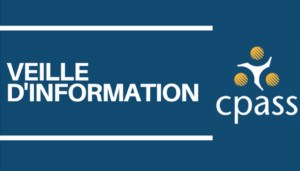
Le CPASS diffuse une veille d’information mensuelle qui présente une sélection de nouveautés touchant à la pédagogie appliquée aux sciences de la santé. Voici de nouvelles parutions, ressources, formations et événements pour cette veille du mois de juillet 2017.
| NOUVELLES PARUTIONS |
| Attitudes towards sub-domains of professionalism in medical education: defining social accountability in the globalizing world
David Ponka, Douglas Archibald, Jessica Ngan, Brendan Wong and, Sharon Johnston. In Canadian Medical Education Journal. Vol. 8: No. 2, 2017, pp. 37-47. |
| A systematic review of the effectiveness of flipped classrooms in medical education
Fei Chen, Angela M Lui and, Susan M Martinelli. In Medical Education Journal. Volume 51, Issue 6, June 2017, pp. 585–597. |
| How evidence from observing attending physicians links to a competency-based framework
Maria Bacchus, David R Ward, Jill de Grood and, Jane B Lemaire. In Medical Education Journal. Volume 51, Issue 6, June 2017, pp. 633–644. |
| Influence of motivation, self-efficacy and situational factors on the teaching quality of clinical educators
Christoph Dybowski, Susanne Sehner and Sigrid Harendza. In BMC Medical Education. (2017) 17:84. |
| “A steep learning curve”: junior doctor perspectives on the transition from medical student to the health-care workplace
Nancy Sturman, Zachary Tan and Jane Turner. In BMC Medical Education. (2017) 17:92. |
| Making Management Skills a Core Component of Medical Education
Myers, Christopher G. PhD and Pronovost, Peter J. MD, PhD. In Academic Medicine: May 2017 – Volume 92 – Issue 5 – pp. 582–584. |
| Twelve tips for the implementation of EPAs for assessment and entrustment decisions
Harm Peters, Ylva Holzhausen, Christy Boscardin, Olle ten Cate & H. Carrie Chen. In Medical Teacher, Volume 39, 2017 – Issue 8, pp. 802-807. |
| Twelve tips for medical teaching in low-resource settings
Alexander Vogt & Shuang Wang. In Medical Teacher, May 2017, pp. 1-4. |
| Preparing medical students for the e-patient
Ken Masters. In Medical Teacher, Volume 39, 2017 – Issue 7, pp. 681-685. |
| Students’ motivation toward feedback-seeking in the clinical workplace
Lubberta H. de Jong, Robert P. Favier, Cees P. M. van der Vleuten & Harold G. J. Bok. In Medical Teacher, May 2017, pp. 1-5. |
| Twelve tips for effective body language for medical educators
Andrew J. Hale, Jason Freed, Daniel Ricotta, Grace Farris & C. Christopher Smith. In Medical Teacher, May 2017, pp. 1-6. |
| Medical Students’ Professional Development as Educators Revealed Through Reflections on Their Teaching Following a Students-as-Teachers Course
Michelle H. Yoon, Benjamin C. Blatt & Larrie W. Greenberg. In Teaching and Learning in Medicine, pp. 1-9. |
| The Development and Impact of a Social Media and Professionalism Course for Medical Students
Alexandra W. Gomes, Gisela Butera, Katherine C. Chretien & Terry Kind. Teaching and Learning in Medicine, Volume 29, 2017 – Issue 3, pp. 296-303. |
| Learning environment: assessing resident experience
Anna Byszewski, Heather Lochnan, Donna Johnston, and Christine Seabrrok. In The Clinical Teacher, Volume 14, Issue 3, June 2017, pp. 195–199. |
| The e-handover: applications for surgical training
Fiona Hand, Aaron Stirling, Patrick Felle, Kevin Conion, and Paul Ridgway. In The Clinical Teacher, Volume 14, Issue 3, June 2017, pp. 211–215. |
| Near-peer teaching programme for medical students
Zoe Gottlieb, Samantha Epstein, and Jeremy Richards. In The Clinical Teacher, Volume 14, Issue 3, June 2017, pp. 164–169. |
| Defining and understanding the relationship between professional identity and interprofessional responsibility: implications for educating health and social care students
Viktoria C. T. Joynes. In Advances in Health Sciences Education, May 2017, pp. 1–17. |
| Developing the Evidence-Base to Support the Integration of Technology-Enhanced Learning in Healthcare Education
James D. Pickering. In Medical Science Educator, May 2017, pp. 1–3. |
| An assessment of residents’ and fellows’ personal finance literacy: an unmet medical education need
Fahd A. Ahmad, Andrew J. White, Katherine M. Hiller, Richard Amini and Donna B. Jeffe. In International Journal of Medical Education, 2017, Vol. 8, pp. 192-204. |
| Intercultural communication through the eyes of patients: experiences and preferences
Emma Paternotte, Sandra van Dulmen, Lindsay Bank, Conny Seeleman, Albert Scher. In International Journal of Medical Education, 2017, Vol. 8, pp. 170-175. |
| Quality indicators for learner-centered postgraduate medical e-learning
Robert A. de Leeuw, Michiel Westerman, and Fedde Scheele. In International Journal of Medical Education, 2017, Vol. 8, pp. 153-162. |
| A Program to Prevent Burnout, Depression, and Anxiety in First-Year Pediatric Residents
Stuart Slavin, MD, Med, MEd Stuart Slavin, Mindy Shoss, PhD, and Matthew A. Broom, MD, FAAP. In Academic Pediatrics, May–June, 2017, Vol. 17, Issue 4, pp. 456–458. |
| Redesigning a course to help students achieve higher-order cognitive thinking skills: from goals and mechanics to student outcomes
Janet Casagrand and Katharine Semsar. In Advances in Physiology Education, June 2017, Vol. 41, No. 2, pp. 194-202. |
| Designing blended learning interventions for the 21st century student
Saramarie Eagleton. In Advances in Physiology Education, June 2017, Vol. 41, No. 2, pp. 203-211. |
| Investigating the Relationship between Instructors’ Use of Active-Learning Strategies and Students’ Conceptual Understanding and Affective Changes in Introductory Biology: A Comparison of Two Active-Learning Environments
Lacy M. Cleveland, Jeffrey T. Olimpo, and Sue Ellen DeChenne-Peters. In Life Sciences Education, Summer 2017, Vol. 16, No. 2, pp. 1-10. |
| A Randomized Controlled Trial to Compare e-Feedback Versus “Standard” Face-to-Face Verbal Feedback to Improve the Acquisition of Procedural Skill
Wissam Al-Jundi, MBBS, MSc, MEd, FRCS, Mohamed Elsharif, MBBS, MRCS, MSc, PgCert (MedEd), Melanie Anderson, MBChB MRCS, Phillip Chan, MA, MBBChir, MChir, FRCS, Jonathan Beard, MBBS, BSc, ChM, MEd, FRCS, Shah Nawaz, MB ChB, MEd, MBA, MD, FRCS, FRCS (gen). In Journal of Surgical Education, May–June, 2017, Vol. 74, Issue 3, pp. 390–397. |
N’hésitez pas à nous contacter pour nous proposer des ressources ou des événements à promouvoir à l’aide de cette veille d’information.
